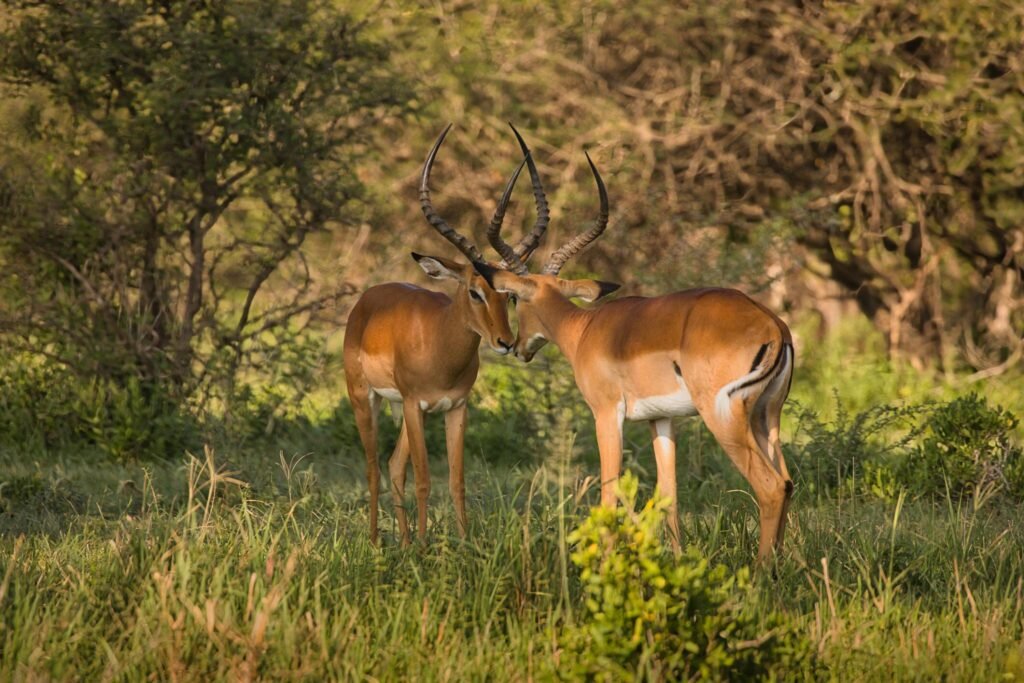Planning a family vacation to Africa can be an exciting way to introduce children to new cultures, breathtaking landscapes, and diverse wildlife. Africa offers a wide range of activities that suit families of all ages, from thrilling safaris to exploring local traditions. However, organizing a family trip requires careful consideration to ensure a safe and enjoyable experience for everyone. In this guide, we will share essential tips for planning a successful Africa family vacation.

1. Choose Family-Friendly Destinations
When planning a family trip to Africa, choosing the right destination is key. While Africa has many exciting places to visit, some are more suited for families. Consider countries with excellent infrastructure, family-friendly activities, and reliable healthcare facilities.
Tanzania: A Top Family Destination
Tanzania is one of the best destinations for families. With its Serengeti National Park, Ngorongoro Crater, and the beautiful beaches of Zanzibar, Tanzania offers a variety of activities suitable for both children and adults. Safaris in Tanzania are well-organized, and many lodges and camps cater to families with young children by offering guided walks and educational programs.
For family-friendly tour options in Tanzania, check out Eddy Tours & Safaris, which offers personalized packages designed with families in mind.
Learn more about family travel destinations in Africa.
2. Plan a Flexible Itinerary
When traveling with children, it’s important to plan a flexible itinerary that allows for downtime. Safaris can involve long days of driving, so be sure to schedule breaks where your family can rest and recharge. Some lodges offer children’s activities, such as nature walks and storytelling, which can help break up the day.
Avoid Overloading the Schedule
While it’s tempting to see as much as possible, avoid packing too many activities into each day. Limit the number of destinations or parks you visit to allow time for relaxation. This will help ensure that everyone enjoys the experience without feeling overwhelmed.
Discover tips for creating flexible travel itineraries.
3. Consider Health and Safety
Traveling with children requires careful attention to health and safety. Before you go, consult a travel health clinic to ensure your family has the necessary vaccinations and medications. Malaria prevention is important in many parts of Africa, so discuss the best options for your family with your doctor.
Pack Essential Medications
Bring a well-stocked first-aid kit with items like bandages, antiseptics, and pain relievers. You should also carry any prescription medications, sunscreen, and insect repellent to protect your family from sunburn and insect bites.
Learn more about staying healthy while traveling in Africa.
4. Choose Family-Friendly Accommodation
Many safari lodges and camps in Africa offer accommodations that are suitable for families. Look for lodges that provide family tents, interconnected rooms, or villas. These accommodations often include amenities like child-friendly menus and dedicated guides who can tailor activities to younger guests.
Tips for Choosing the Right Lodges
- Safety: Make sure the lodge has safety measures like secure rooms and wildlife-safe zones.
- Childcare Services: Some lodges offer babysitting or supervised activities, giving parents a chance to relax while children are entertained.
- Family Programs: Choose lodges that offer educational programs for children, such as animal tracking or learning about local cultures.
Explore family-friendly safari lodges.
5. Book Group or Private Safari Tours
When traveling with children, it may be beneficial to book a private safari tour. A private guide allows your family to go at your own pace, making the experience more enjoyable for younger travelers. Many operators offer customized safaris that focus on family-friendly activities, such as shorter game drives and interactive learning experiences.
A group tour can also be a good option for families who want to meet other travelers and share costs. Group safaris often offer a range of activities for children, such as animal spotting games and nature hikes.
Check out Kilimanjaro Climb Specialist for private safari tours tailored to family needs.
6. Prepare Your Children for the Trip
To ensure your children enjoy the trip, involve them in the planning process. Talk to them about what they can expect, including long travel times, the different types of animals they’ll see, and the cultural differences they may encounter. You can also introduce them to African wildlife and traditions through books, documentaries, and games.
Packing for Kids
Be sure to pack appropriate clothing, including lightweight layers, a hat, and comfortable walking shoes. Bring activities to keep children entertained during long drives or flights, such as books, travel games, and tablets.
Read more tips for traveling with kids.
7. Include Cultural Experiences
A family trip to Africa is not just about seeing wildlife. Be sure to include cultural experiences that will give your children a deeper understanding of the places you visit. Many countries offer opportunities to visit local villages, learn about traditional crafts, and participate in community activities.
Maasai Village Visits
In Tanzania, you can visit Maasai villages and learn about their way of life. These visits often include learning how the Maasai build their homes, hearing traditional stories, and seeing dance performances. This is a great way for children to learn about the local culture in a hands-on, engaging way.
Learn about visiting Maasai villages.
8. Budgeting for a Family Safari
Safaris can be expensive, but with careful planning, you can manage costs without sacrificing the experience. Traveling during the off-season or choosing less-visited parks can help reduce accommodation and tour costs. Many safari lodges offer family discounts, so be sure to ask about special rates.
Additionally, booking all-inclusive packages can help you save money by bundling accommodation, meals, and activities into one price.
Get tips for saving money on safari trips.
9. Bring Binoculars and Cameras
Bringing binoculars and cameras allows your children to be more engaged during the safari. Even younger children can enjoy spotting animals through binoculars. Consider giving each child a disposable camera or point-and-shoot camera so they can document their own experiences. This encourages them to be more active participants during game drives and walks.
Check out the best gear for safari photography.
10. Stay Flexible and Have Fun
While planning is essential, it’s also important to stay flexible. Unexpected delays, weather changes, or altered plans can happen, especially when traveling with children. Keep a positive attitude and focus on creating lasting memories with your family. Safaris offer a unique way for families to bond while discovering the beauty and diversity of Africa.
For more family-friendly tour packages, check out Eddy Tours & Safaris, where they provide customized safari itineraries for families.
Conclusion: Planning an Africa Family Vacation
An Africa family vacation is a chance to connect with nature and discover new cultures together. With thoughtful planning, you can ensure your family has a safe and enjoyable experience. Whether you’re exploring the Serengeti, climbing Kilimanjaro, or visiting local communities, Africa has something for everyone.
For help organizing your family’s dream trip, visit Kilimanjaro Climb Specialist or Eddy Tours & Safaris for tailored family safari packages.

